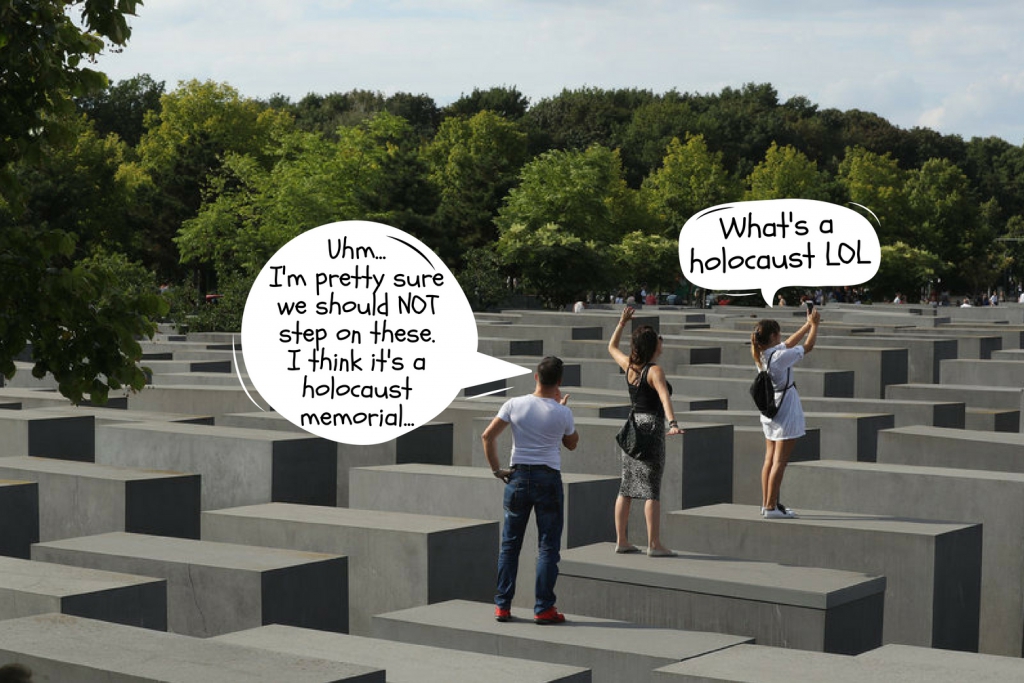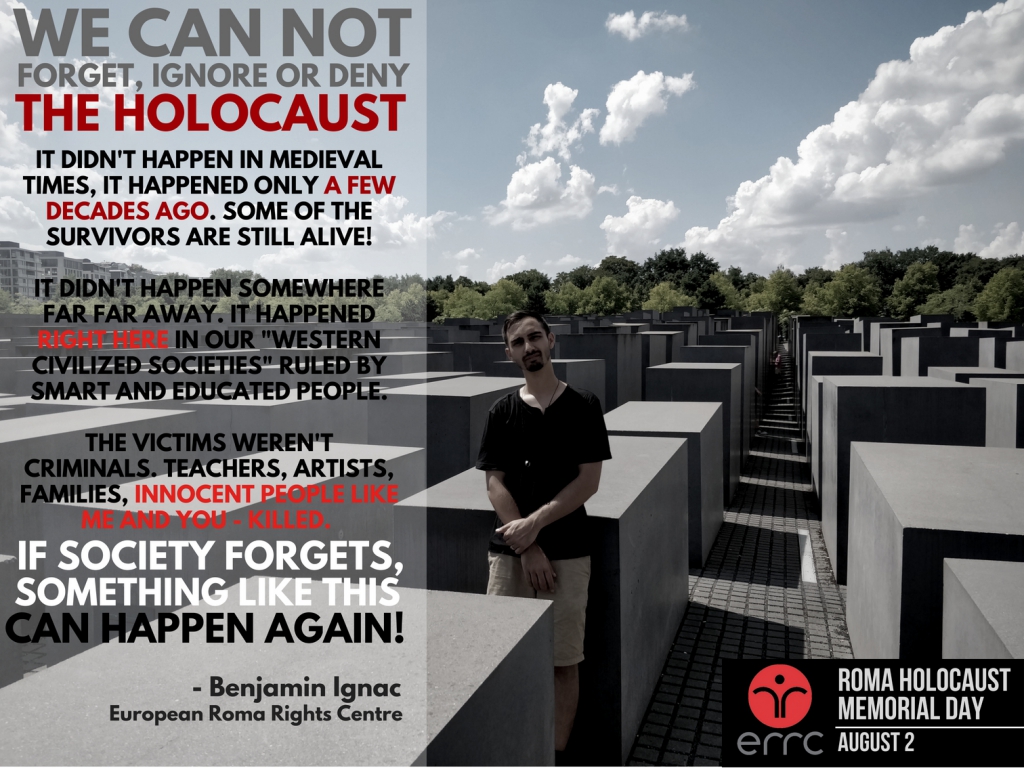Why it is important to remember the Roma Holocaust?
02 August 2018
By Benjamin Ignác
It is estimated that somewhere between 11 and 17 million lives were erased during the Holocaust. With over 6 million lives lost, the Jews were by far the most persecuted group and lost around two thirds of their entire European population during this period. The fact that the Roma were also selected for racial genocide by the Nazis was neglected by historians for decades. Other groups targeted were Slavic peoples, homosexuals, Jehovah’s Witnesses, and other political opponents. The tragedy of many of these groups is that their losses are often minimized, forgotten, or blatantly neglected.
Roma people across Europe have coined various terms for the Roma Holocaust. Some use the Romani word Porrajmos which means “Devouring” or “Destruction”. Balkan Roma use Samudaripen which means “Mass Killing”. Some Roma in Eastern Europe use Kali Traš meaning "Black Fear” or Berša Bibahtale meaning "The Unhappy Years”. Every year Roma commemorate the victims of Porrajmos on August 2 - the date on which over 3,000 Roma were exterminated in the “Gypsy Camp” at Auschwitz – Birkenau in 1944.
Roma genocides took place not only in Nazi-Germany but also in puppet regimes that cooperated with the Third Reich and in terrible slaughters committed by Germany and its allies in countries invaded by the Nazis. According to the historians at the US Historical Holocaust Museum the death toll of Roma lies between 200,000 and 500,000, but some scholars would argue that the number should be closer to 1.5 million because of all the additional undocumented killings of Romani people that took place all over Europe.
In my homeland - Croatia - between 16,000 and 40,000 Roma were slaughtered by the Ustaše – a Croatian fascist terrorist organization that decimated Serbs, Roma, and Jews in Jasenovac in the early 1940s. Croatia virtually exterminated the country’s entire Roma population. A genocide in its truest sense.
Why do I still have to care now?
It’s been over 70 years since the Holocaust happened so I’m not going to pretend to know how it was like to live during those dark years of European history. But the 1940s are still relatively recent so my grandparents’ generation definitely knew what it was like, especially because they were Roma. As a Roma, I am indebted to those who resisted and defeated the Nazis because the liberation brought the Porrajmos to an end, and because of this, me, my family and many of my friends are alive today.
Many people don’t understand what’s the “big deal” about holocaust remembrance or in some cases don’t even know about the term “holocaust”. A study showed that two thirds of US millennials didn’t know what Auschwitz was and grossly underestimated the number of holocaust victims. This study underlines: 1) how ignorant my generation can be, and 2) how important proper holocaust education is.
 Europe is also not a shinning example. Hungary is rehabilitating war criminals and recently honoured a journalist who described Roma as “animals that should not be allowed to exist”. Croatians are glorifying their pro-Nazi Ustaše leaders and minimize or revise historical facts about their genocide. Italy requested a registry of its Roma population. Ukraine condones radical groups that persecute Roma by burning their settlements and even killing them. Various European politicians and state leaders have on several occasions referred to Roma as “parasites” or “disease”. They often use minorities as scapegoats and spread hate propaganda about “these dangerous others” in mass media.
Europe is also not a shinning example. Hungary is rehabilitating war criminals and recently honoured a journalist who described Roma as “animals that should not be allowed to exist”. Croatians are glorifying their pro-Nazi Ustaše leaders and minimize or revise historical facts about their genocide. Italy requested a registry of its Roma population. Ukraine condones radical groups that persecute Roma by burning their settlements and even killing them. Various European politicians and state leaders have on several occasions referred to Roma as “parasites” or “disease”. They often use minorities as scapegoats and spread hate propaganda about “these dangerous others” in mass media.
All of these “red flags” very much resemble the things that happened during the interwar collapse of democracy in the face of fascism which culminated in global war and the industrialised slaughter of the holocaust. History has this tendency of repeating itself, especially in societies that refuse to learn from the past because they rewrite or forget what happened. But the holocaust is not something we can afford to “forget”. It didn't happen in medieval times, it happened only a few decades ago. Some of the survivors are still living. It didn't happen somewhere far, far away. It happened right here in our "western civilized societies" ruled by smart and educated people. The victims weren't criminals. They were teachers, artists, families, innocent people like me and you. It is up to all of us to prevent something like this from ever happening again.





